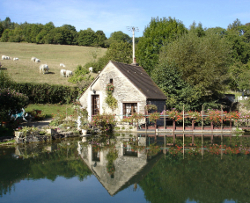by Deborah Kent
For UK buyers considering entering the French market, there is one purchase option that stands out in terms of investment potential and the ability to get on the property ladder despite the lack of an initial deposit. If this sounds too good to be true – read on!
In actual fact, while nothing similar exists in the UK, the leaseback scheme available in France is worth looking at. The leaseback is a curious mixture of tax incentive and rental guarantee, which is designed to encourage buyers to take on new build homes.
UK buyers will be familiar with developers in the UK offering rental guarantees, which are generally at attractive rates and have a finite life of 1 or 2 years. However, the new build French market differs from the UK in one significant area, namely VAT. Whilst new homes in the UK do not carry VAT, in France that is not the case.The idea behind a leaseback is simple. The purchaser agrees to own the new home for a specific period, which is generally a minimum of 9 years. During the early years of ownership, the developer will guarantee a rental income.
In return, the purchaser receives a refund of the VAT due on the property at the current French rate of 19.6%, as well as an asset which should at least break even over the first few years it is held.
There are two catches to consider with any purchase of this type and both follow from the basic advice that investors should never buy an asset purely because of the tax benefits, as these can and do change retrospectively. Firstly, buyers should know that if they sell the house within the 9 year period, the VAT will be reclaimed, so selling early can have a significant sting in the tail.
The second problem is common to both the French and UK markets and revolves around the rental guarantee. This is not a statutory guarantee, but rather it is a sales promotion device. Whilst the headline rate might appear attractive, it is important to realise that at the end of the guarantee period, responsibility will revert to the owner to find a new tenant using local property agents. At this point, the rental yield achieved will revert to the market norm, as there will not be any subsidy from the developer. An important item to research therefore, is the level of normal rental yields in the particular area where the property is located, so the investor can plan ahead to see whether costs are likely to be covered in the medium term.
One big advantage of the leaseback, though, is that it can offer an opportunity to get on the property ladder with virtually no deposit, in a market where 20% and 30% personal deposits are the norm. This ruse works when the banks and the developer agree that the VAT refund can be paid before the purchase is completed. Whilst the norm is for banks to fund 80% of the price excluding VAT, if the 19.6% tax refund is added in at the start of the contract, the buyer only has to effectively find a 0.4% deposit.
The complexities of currency, language, customs and local law all add up to make negotiating a foreign currency mortgage a far more complex task than the equivalent UK product. Having an English-speaking qualified and regulated mortgage adviser on your side can help guide you through this maze, but house hunters, whether looking at leasebacks or the more traditional older home should allow plenty of time to get their finances in order before viewing their dream home.

